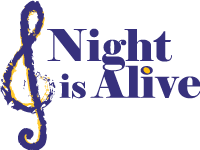
On Friday, July 19, Night is Alive’s very own Bill Cunliffe and his octet played a very special show at Nighttown in Cleveland Heights, Ohio. Cunliffe, a dynamic West Coast-based pianist led an all-star octet as they play the music of jazz legend, Oliver Nelson.
Nelson might not have been as big as his contemporaries — trumpet player, Clifford Brown and saxophone players John Coltrane and Charlie Parker, but the musician’s body of work is just as extensive. Who exactly was this legend and why was he so instrumental to jazz? Keep reading to find out.
Early Life
Oliver Edward Nelson was born on June 4, 1932, in St.Louis, Missouri. He was the youngest of four and was born into a very musical family. Nelson’s maternal grandfather was an amateur musician who could play a variety of instruments. His older brother was a saxophone player who performed with Cootie Williams’ big band during the 1940s. And his sister was a professional pianist and vocalist.
Nelson began his music career in his teens. His first job was playing alto saxophone and arranging music for Louis Jordan. He made his recording debut at age 19 with Jordan’s big band in 1951. Nelson also played with Eddie Randall, a St. Louis trumpeter and bandleader who influenced many young local musicians, including Miles Davis.
From The Military To New York City
In 1952, Nelson started serving in the U.S. Marine Corps. During his years in Japan and Korea, he played woodwinds in the 3rd Marine Division Band. He finished his service in 1954 and went on to study music composition and theory at Washington University and Lincoln University. A few years later, Nelson headed to New York City where he played with trumpeter Erskine Hawkins. He would go on to work with the likes of organist William “Wild Bill” Davis, drummer Louis Bellson and Quincy Jones. He also subbed for Duke Ellington’s and Count Basie’s bands from time to time and worked as the house arranger for the Apollo Theater.
The Big Break
Prestige Records signed Nelson in 1959 and he recorded six albums between then and 1961. In February of `1961, he recorded “The Blues and the Abstract Truth” for Impulse! Records. It would be his most lauded album and it included “Stolen Moments,” a piece with sixteen-bars in an eight-six-two pattern and solos in a conventional 12-bar minor-key blues structure in C minor. Nelson played tenor sax and recorded the album with pianist Bill Evans, bassist Paul Chambers, drummer Roy Haynes, Eric Dolphy doubling on alto sax and flute, and Freddie Hubbard on trumpet.
The album helped create wonderful opportunities for Nelson. He was asked to arrange music for Nancy Wilson, the Temptations, Diana Ross, James Brown and many others. He also created music for TV shows like “The Six Million Dollar Man” and arranged the music for the motion picture “Last Tango in Paris.”
And just when everything was going right, Nelson’s career was cut short. He died of a heart attack at the age of 43 on October 28, 1975.
Even though Nelson’s life was brief, his musical genius lives on. On Friday, July 19, 2019, jazz pianist, composer and Grammy Award-winning arranger Bill Cunliffe played Nelson’s music alongside Martin Wind on bass, Tim Hoerner on drums and a special guest vocalist. It was a memorable evening that spotlighted a musical genius and his body of work.






